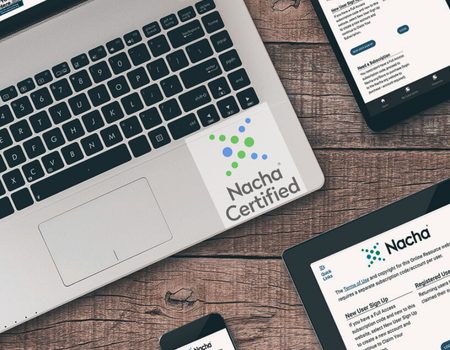Call us: +1-855-202-3299
Email: [email protected]
New NACHA Operating Rules Changes In 2024 PLUS Insight Into 2026 Changes
Speaker: Donna K Olheiser, AAP
Speaker Designation: VP of Education & Founder, Dynamic Mastership

Call us: +1-855-202-3299
Email: [email protected]
Speaker: Donna K Olheiser, AAP
Speaker Designation: VP of Education & Founder, Dynamic Mastership

Each participant in the ACH Network is required to follow the NACHA Operating Rules and be compliant. Minor topics changes included within these updated Rules:
• General Rule for WEB Entries
• Definitions of Originator
• Originator Action on Notification of Change
• Data Security Requirements
• Use of Prenotification Entries
• Clarification of Terminology – Subsequent Entries
PLUS - Effective on Oct 1, 2024, are Rules changes as part of a larger Risk Management package intended to reduce the incidence of successful fraud attempts and improve the recovery of funds after frauds. Included in this portion of the Risk Management Rule amendments are:
• Codifying Expanded Use of Return Reason Code R17
• Expanded Use of ODFI Request for Return/R06
• Additional Funds Availability Exceptions
• Timing of Written Statement of Unauthorized Debit
• RDFI Must Promptly Return Unauthorized Debit
The session includes an overview with a brief explanation of Rules to come in 2026 on Risk Management topics.
To remain in compliance with the Rules, participants in the ACH network need to ensure they are up to date on recent changes and newly approved amendments to the Rules.
Whether it’s the minor Rule changes that are expected to have little impact on ACH participants and no significant processing or financial impact, it is still important to ensure you comply!
The Risk Management topics will improve recovery of funds in fraud situations, these are a NEED to KNOW! Your ACH operations process is changing! Register Today to ensure YOUR compliance with the most RECENT updates to the Nacha Operating Rules!
New changes to the NACHA Operating Rules include "minor" Rule changes - effective June 21, 2024 (no major impact on operations but a must-know to remain in compliance - by knowing what they are clarifying in the minor Rule change topics).
In addition, Risk Management Topics - effective Oct 1, 2024 (covering topics that were proposed before but now really happening) - such as "Expanded use of Return Reason Codes R06 and R17"; "funds availability exceptions" and "Unauthorized Return changes for the RDFI with the timing of the WSUD and returning the unauthorized transaction". Outline of upcoming rule changes in 2026!
Donna founded Dynamic Mastership, LLC in December 2014 in an effort to utilize her 24+ years’ experience in the financial services industry, by sharing her passion for training financial institutions and organizations on the Rules and processes for electronic payments (with her specialty being ACH payments). She holds the Accredited ACH Professional (AAP) designation (achieved in 2004). Donna’s experience before founding Dynamic Mastership, includes 9 years' serving as the Education Service Director at a Regional Payments Association (RPA), where she managed and facilitated the entire Education program for nearly 800 financial institution members. Prior to that, Donna spent 14 years with the Federal Reserve Bank of Minneapolis in various departments, where she started her training career as the Training and Development Specialist in 2003.
Donna is a certified Master Trainer who continually uses her extensive knowledge, experience, enthusiasm and passion for transferring payment processing details, while using the adult learning theory is remarkable! Her training style has helped many payment professionals remain consistently informed of the NEW and ever-changing NACHA Operating Rules and explaining how the Rules apply when performing daily operational tasks including complex return and exception processing. She incorporates scenarios and examples in her detailed training, so the Rules are easy to comprehend and apply to real-life day-to-day ACH processing. Donna's ability to engage the learner through the entire training event helps the adult learner apply what they've learned during and after each training session.